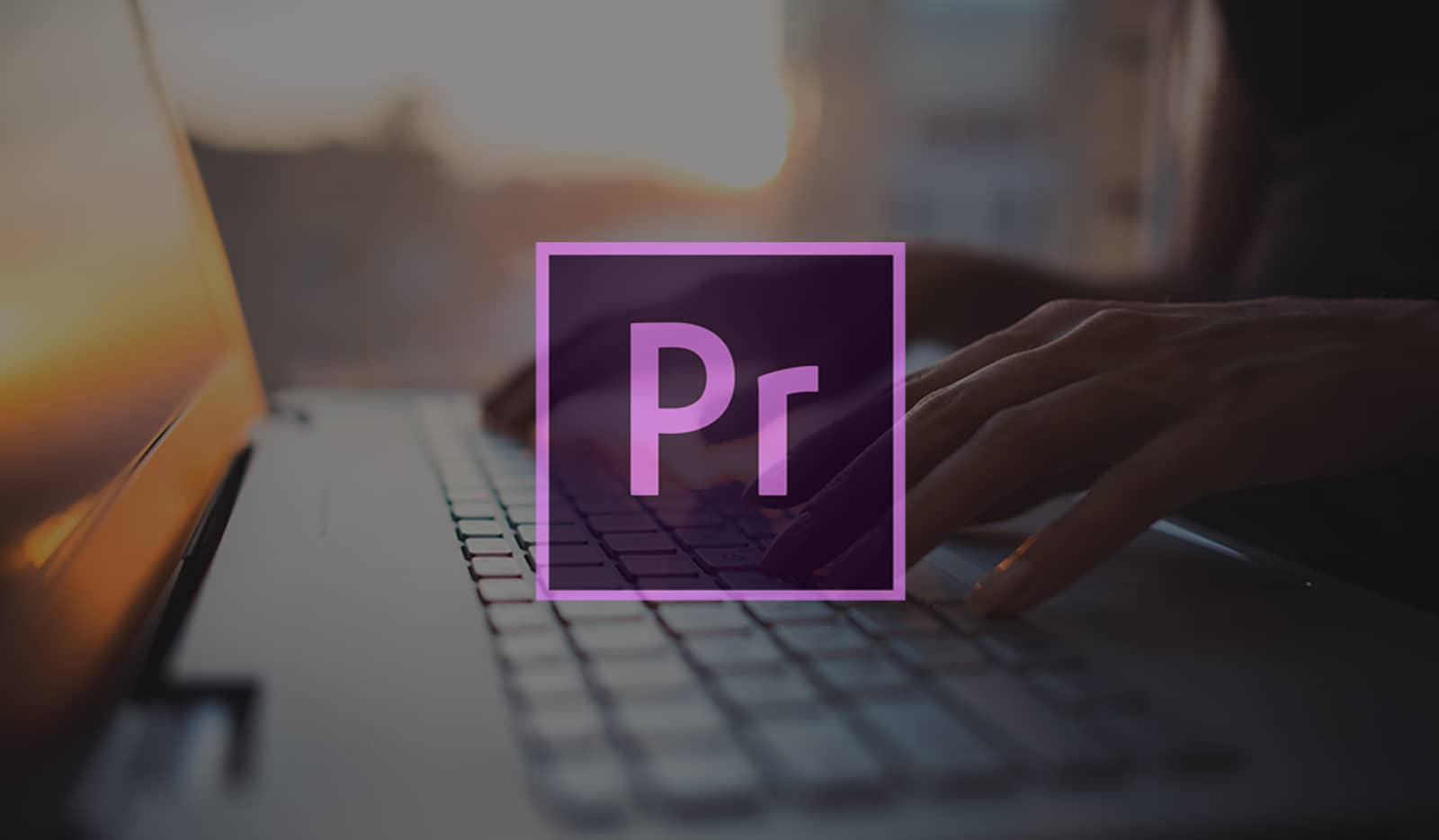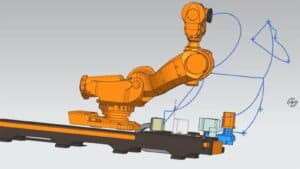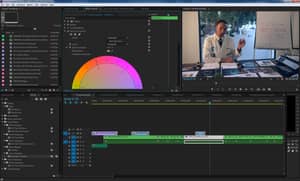
As a video editor, you're well aware that finding the best laptop for Adobe Premiere Pro CC is crucial for a seamless and productive editing experience. Whether you're a freelance editor or a professional working in the film industry, the right laptop can make all the difference. I've spent countless hours poring over an extensive laptop spreadsheet, comparing recent releases, specs, and reviews to help you find the perfect machine that caters to the unique demands of Adobe Premiere Pro users.
Premiere Pro CC is a resource-intensive application, and it's essential to select a laptop that can handle its high-performance requirements. You need a device with a powerful processor, ample RAM, and a dedicated GPU to ensure smooth video playback and efficient rendering. Balancing these specifications with factors like battery life, portability, and budget constraints can be challenging, but I've narrowed down the top laptops for various price ranges to help you make an informed decision.
As someone who has used Adobe Premiere Pro CC for numerous projects, I understand the importance of a laptop that can keep up with the ever-evolving demands of video editing. I've taken into consideration features like color-accurate displays, Thunderbolt 3 support for fast data transfers, and robust cooling systems to prevent overheating during long editing sessions. So, whether you're editing 4K footage or working with complex visual effects, this guide will help you find the best laptop for Adobe Premiere Pro CC that meets your specific needs and preferences.
The right processor
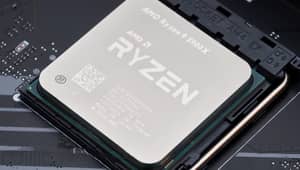
Your processor CPU determines how fast your video clips are processed. The higher the resolution of your video clip, the longer the processing takes. And as one might guess, higher capacity processors can reduce the time required for processing high-resolution clips.
Requirements
While the Premiere Pro requirements specify the requirement of a CPU of Intel 6th generation or higher, it’s important to note that working with the program requires a high amount of speed, so the fastest processor within your budget would be the best for you to go with.
Recommendations
Your processing technology choice also has to be taken with consideration of your other system specs, specifically your video card GPU (see below) can help determine your processor’s performance.
In terms of your budget, you’ll want to find a laptop with at least an Intel Core i5-1145G7 or Ryzen 7 5800U. You’ll be able to process high-resolution clips in a timely manner, even if it is not the absolute fastest.
For the best in terms of speed and performance, I would recommend either an Intel Core i9-11900H or AMD Ryzen 9 3900X. These will be able to process high-resolution clips quickly and efficiently, making it a worthwhile investment for any Premiere Pro CC user.
Graphics card
With Adobe Premiere Pro CC, you can use either macOS or Windows; however, I'd recommend going for a MacBook Pro if you're looking to use it for other tasks besides video editing. The GPU is critical for rendering and encoding video in real-time; however, it's not the only component that matters.
The best way to tell if your laptop has a good graphics card is to check its model number. If it ends with an "H", it's a good sign that it has a dedicated GPU; otherwise, it's integrated graphics (IGP). I use Cinebench R23 to compare different GPUs because it's one of the most popular benchmarks for video editing; however, there are other 3DMark scores available online that can be used as an alternative.
If you're looking for a gaming laptop – look beyond the GPU requirements of your favorite games and pay attention to the CPU clock rate and RAM allocation as these are more important than the graphics card in gaming performance (though not by much).
Desktop GPUs are now a lot more power-hungry; thus, the gap between power-limited notebook graphics and desktop graphics cards has widened in the past few years. Nvidia has discontinued Max-Q use for its RTX graphics cards. Now, an exact GPU wattage is determined by a laptop manufacturer (OEM). That results in a wide variance in graphics performance even in laptops with the same GPU chipset.
Here are my recommended GPUs:
- Minimum: GTX 1650
- Recommended: RTX 3060
- High-end: RTX 3070
Memory
As anyone who's used Adobe Premiere Pro can attest, it's a resource-hungry application. It can be especially demanding when working with 8K footage. So, you'll need a lot of RAM to ensure smooth performance.
The amount of RAM you need depends on your projects' complexity, your editing style, and your footage's resolution. For example, if you're working with 4K footage, you'll need at least 16 GB of RAM to ensure smooth playback and scrubbing through your timeline. If you're working with 8K footage, 32 GB would be ideal.
When choosing the right laptop for Adobe Premiere Pro, make sure it has enough memory slots so that you can upgrade it in the future if needed.
Minimum RAM Requirements for Adobe Premiere Pro
Adobe Premiere Pro is a powerful video editing application that requires a fair amount of RAM to run smoothly. The minimum amount of RAM that Adobe Premiere Pro CC requires is 8 GB. However, we recommend opting for at least 16 GB of RAM for optimal performance. If you're working with 8K footage or complex projects, 32 GB of RAM would be ideal.
How Much RAM Do You Need for Video Editing?
The amount of RAM you need for video editing depends on your project's complexity, your editing style, and your footage's resolution. For example, if you're working with 4K footage, you'll need at least 16 GB of RAM to ensure smooth playback and scrubbing through your timeline. If you're working with 8K footage, 32 GB would be ideal.
When choosing the right laptop for Adobe Premiere Pro, make sure it has enough memory slots so that you can upgrade it in the future if needed.
Is There a Need for DDR5?
Most mid-range laptops come with 16 GB of RAM and high-end laptops – 32 GB or more. Latest-gen Intel and AMD CPUs support DDR4 and DDR5, though DDR5 is still expensive and needs time to mature as a technology.
Essential Needs
Clearing your doubts: Adobe Premiere Pro CC Laptop Buying
Q: What is the best laptop for Adobe Premiere Pro CC?
When it comes to finding the best laptop for Adobe Premiere Pro CC, you'll want to consider a few key factors like processor power, memory, and graphics capabilities. The HP Victus 15t, priced at $730, offers a great balance of performance and affordability. However, for those seeking a higher-end option, the MSI Summit E13 is an excellent choice, with a price starting at RECOMMENDATIONS_ALL,140. If budget isn't a concern, the ASUS ROG Strix Scar at $2,310 or the Lenovo Legion Pro 7i 16 at $3,390 are powerful options. For the ultimate experience, the ASUS ROG Zephyrus Duo priced at $5,250 provides top-of-the-line performance and features.
What laptop specs are recommended for Adobe Premiere Pro CC?
To run Adobe Premiere Pro CC smoothly, we recommend a laptop with at least a Medium-level configuration. This includes a processor like the Ryzen 7 5800U or the i9-11900H, 16 GB of RAM, and a graphics card such as the RTX 3060 or RTX 3070. These specs will ensure you have the processing power and memory necessary for editing videos and handling complex projects without slowdowns or lag.
Can I use Adobe Premiere Pro CC on a laptop?
Absolutely! Adobe Premiere Pro CC is fully compatible with laptops, and it is a popular choice for video editing on the go. Laptops have become increasingly powerful in recent years, allowing for smooth and efficient editing experiences. Just make sure your laptop meets the recommended system requirements to ensure optimal performance.
How much RAM do I need for Adobe Premiere Pro CC on a laptop?
For Adobe Premiere Pro CC on a laptop, we recommend a minimum of 16 GB of RAM. This will provide enough memory for smooth multitasking and efficient video editing. If you work with large projects or frequently use resource-intensive effects, opting for 32 GB of RAM may provide even better performance.
Is a dedicated graphics card necessary for Adobe Premiere Pro CC on a laptop?
While a dedicated graphics card is not strictly necessary for Adobe Premiere Pro CC on a laptop, it is highly recommended. A dedicated graphics card, such as the GTX 1650, RTX 3060, or RTX 3070, significantly enhances the performance and efficiency of video editing tasks. It allows for faster rendering, smoother playback, and better real-time effects processing. If video editing is a significant part of your workflow, investing in a laptop with a dedicated graphics card is a wise choice.
What is the minimum processor requirement for Adobe Premiere Pro CC on a laptop?
The minimum processor requirement for Adobe Premiere Pro CC on a laptop is the i5-1145G7. However, keep in mind that this is the bare minimum, and for a smoother experience, we recommend opting for a more powerful processor like the Ryzen 7 5800U or the i9-11900H. These processors provide better performance and allow for faster video rendering and editing.
Can a budget laptop handle Adobe Premiere Pro CC?
Yes, a budget laptop can handle Adobe Premiere Pro CC to some extent. However, it's important to manage your expectations regarding performance and efficiency. Budget laptops, such as the HP Victus 15t priced at $730, may have limitations when it comes to multitasking, handling complex effects, or rendering large video files. If you primarily work on smaller projects or have a more casual video editing workflow, a budget laptop can still provide a decent experience. However, if video editing is a critical part of your work, consider investing in a laptop with a more powerful configuration.
What storage capacity is recommended for Adobe Premiere Pro CC on a laptop?
For Adobe Premiere Pro CC on a laptop, it is recommended to have a storage capacity of at least 512 GB. Video files can quickly consume a significant amount of storage space, and having enough room for your projects is crucial. Additionally, consider opting for a laptop with fast storage options like SSDs, as they provide quicker access to files and faster rendering times.
Are Macbooks better for Adobe Premiere Pro CC or Windows laptops?
The choice between Macbooks and Windows laptops for Adobe Premiere Pro CC depends on personal preference and budget. Both platforms offer capable laptops that can handle video editing tasks. Macbooks, known for their sleek design and intuitive user interface, are popular among creatives. However, Windows laptops often provide more hardware customization options at different price points. Ultimately, choose a laptop that meets the recommended system requirements and fits your workflow preferences.
What are the system requirements for Adobe Premiere Pro CC on a laptop?
The system requirements for Adobe Premiere Pro CC on a laptop are as follows
5 Best Laptops for Adobe Premiere Pro CC
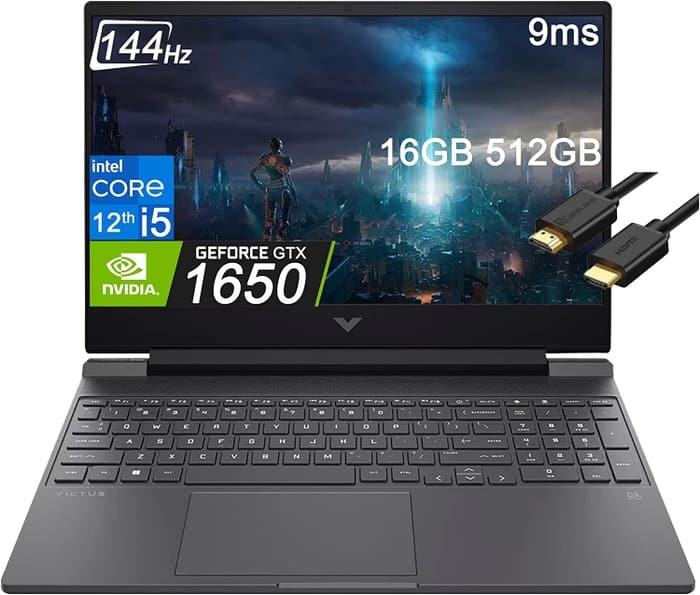
1.HP Victus 15t
The HP Victus 15t is a budget-friendly laptop that offers solid gaming performance for the price, but it comes with some trade-offs.- Low price
- Solid gaming performance
- Good productivity performance
- Three color choices
- Weak GPU yields unsatisfactory frame rates
- Screen only so-so despite 144Hz refresh rate
- All-plastic construction
- Non-RGB keyboard with quirky nav controls
Summary
The HP Victus 15t is an affordable gaming laptop that delivers solid gaming performance at a budget-friendly price. While it may lack in certain areas such as display quality and battery life, it offers good value for money for those looking for a capable gaming laptop on a tight budget.
Alternatives
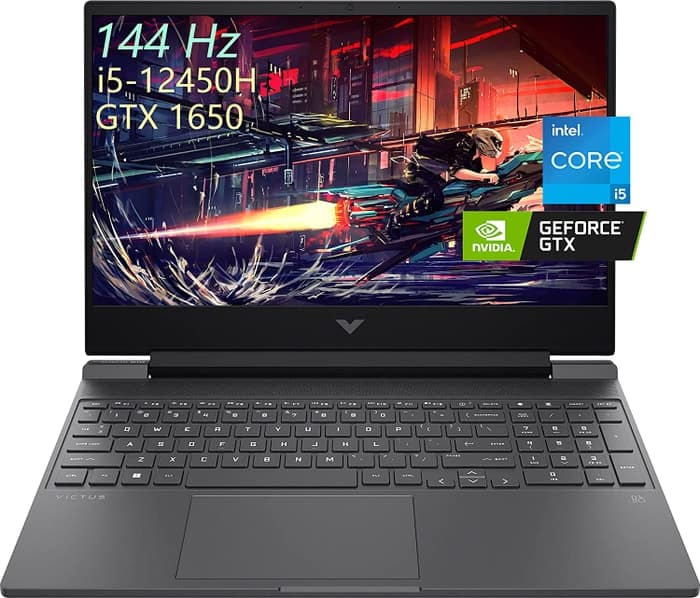
HP Victus
- Awesome processor (i5-12450H)
- Splendid display (15.6 IPS)
- Average graphics card (GTX 1650)

2.Lenovo Legion 5i Pro 16
Lenovo Legion 5i Pro 16: A Powerful Gaming Laptop with Sleek Design and Plenty of Ports.- Stylish, sleek form factor
- Gorgeous display
- Strong performance
- Quiet fans
- Webcam quality is poor
- No biometrics
- SSD is slightly slower than competition
Summary
The Lenovo Legion 5i Pro 16 is a sleek and stylish gaming laptop that offers strong performance and a beautiful display. It comes with plenty of ports and has quiet fans, but the webcam quality is lacking and it lacks biometric features. The SSD is also slightly slower compared to its competition.
Reviews
Alternatives
HP Omen 17
- Terrific processor (i9-12900HX)
- First-class graphics card (RTX 3080 Ti)
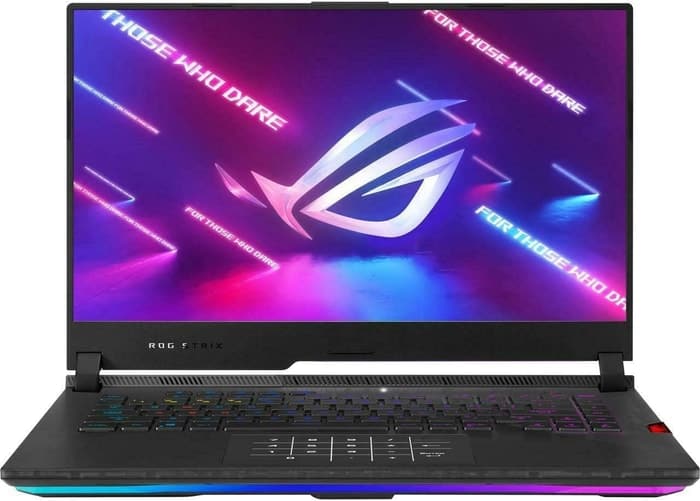
3.ASUS ROG Strix Scar
ASUS ROG Strix Scar offers top-notch performance and display, but falls short in terms of heat management and battery life.- Sturdy construction
- Fast Wi-Fi 6E
- Excellent performance and display quality
- Wide color gamut coverage with Dolby Vision support
- Limited display angle
- No biometric login
- High heat and noise emissions under load
- Battery backup could have been better
Summary
The ASUS ROG Strix Scar impresses with its powerful Core i9-12900H and RTX 3070 Ti performance, along with a sturdy construction and fast Wi-Fi 6E. However, it suffers from limited display angle, no biometric login, high heat and noise emissions under load, and subpar battery backup.
Reviews
Alternatives
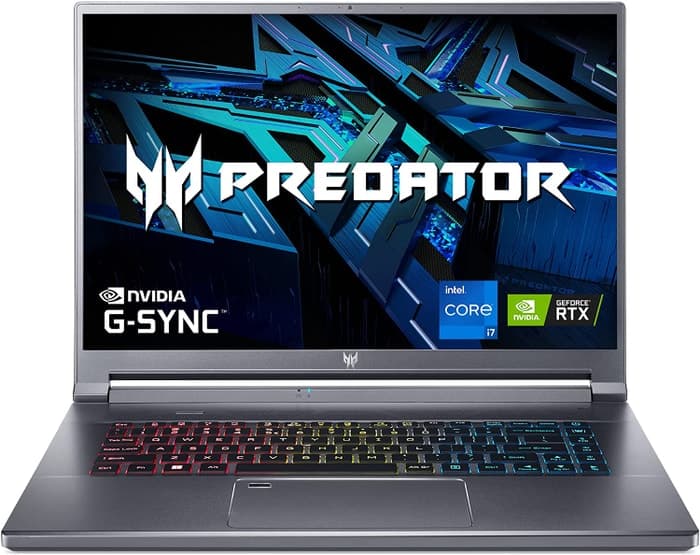
Acer Predator Triton 500
- High performance capabilities
- Excellent, bright 240-Hz display
- Soldered-in RAM
- Inaccessible SSD
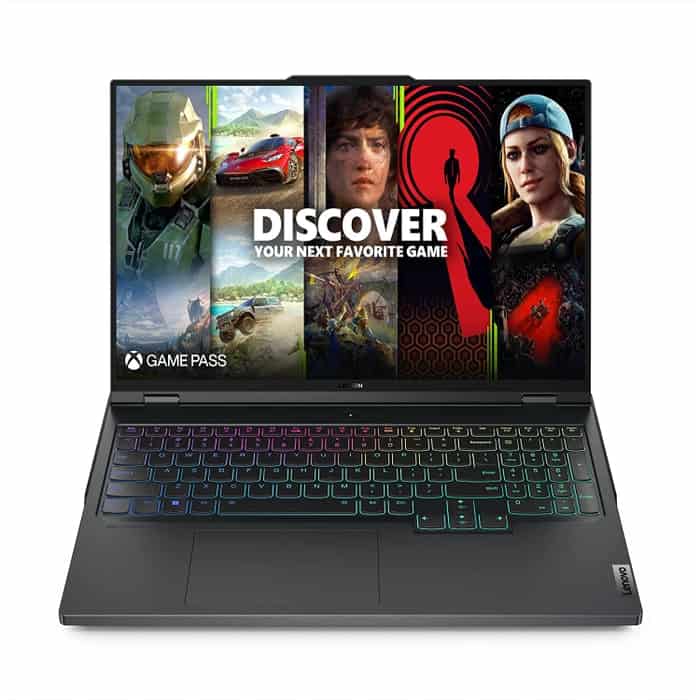
4.Lenovo Legion Pro 7i 16
Lenovo Legion Pro 7i Gen 8: A Mid-Priced Powerhouse for Adobe Premiere Pro CC.- Strong overall performance
- Display is big, bright, and fast
- Per-key RGB lighting
- Some flex to keyboard deck
- Poor battery life
Summary
The Lenovo Legion Pro 7i Gen 8, equipped with a 13th-gen Core i9 CPU and RTX 4090 graphics, offers strong overall performance and a big, bright, and fast display. With the added perk of per-key RGB lighting, it's a mid-priced powerhouse for Adobe Premiere Pro CC.
Reviews
Alternatives

HP Omen 17
- QHD display with 165 Hz
- Advanced Optimus
- Slightly below-average
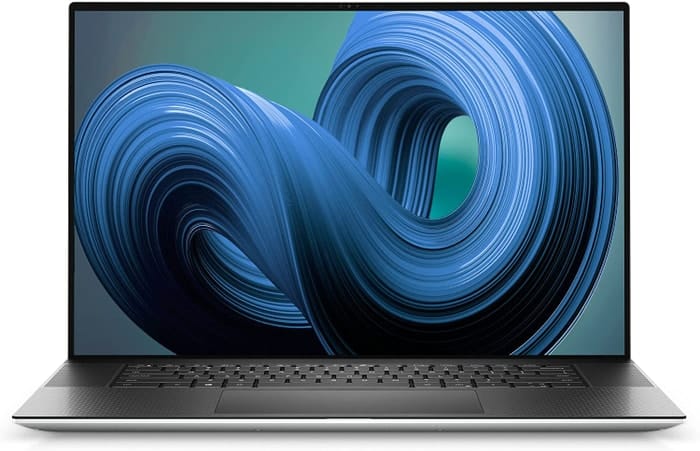
5.Dell XPS 17 9720
Dell XPS 17 9720: A powerful laptop for Adobe Premiere Pro CC, but with some performance and cooling issues.- Excellent 4K display with AdobeRGB
- High-quality case
- Thunderbolt 4 PCIe 4.0
- Very high system performance
- Lower graphics performance than the predecessor
- Performance not completely stable under combined load
- Not Wi-Fi 6E compatible
- 720p webcam
Summary
The Dell XPS 17 9720 is a capable laptop for Adobe Premiere Pro CC, thanks to its excellent 4K display with AdobeRGB and high system performance. However, it falls short in graphics performance compared to its predecessor, and the cooling system is slightly weak.
Reviews
Alternatives
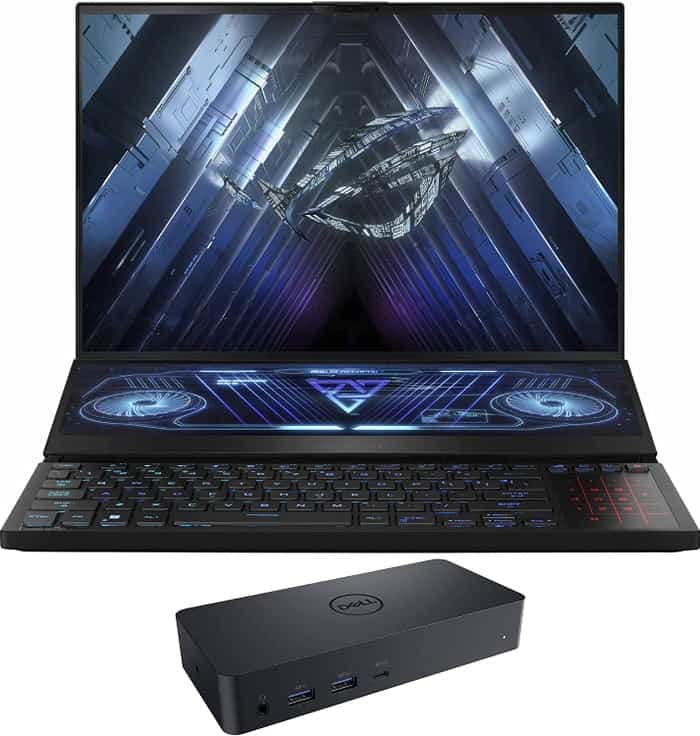
ASUS ROG Zephyrus Duo
- Impressively thin and elegant design
- Refined two-screen layout
- Eye-watering cost
- Awkward keyboard and touchpad layout
Table of the Best Laptops for Adobe Premiere Pro CC
| Laptop | Price (approx) |
| HP Victus 15t | $730 |
| Lenovo Legion 5i Pro 16 | $1,300 |
| ASUS ROG Strix Scar | $2,050 |
| Lenovo Legion Pro 7i 16 | $3,800 |
| Dell XPS 17 9720 | $5,600 |

